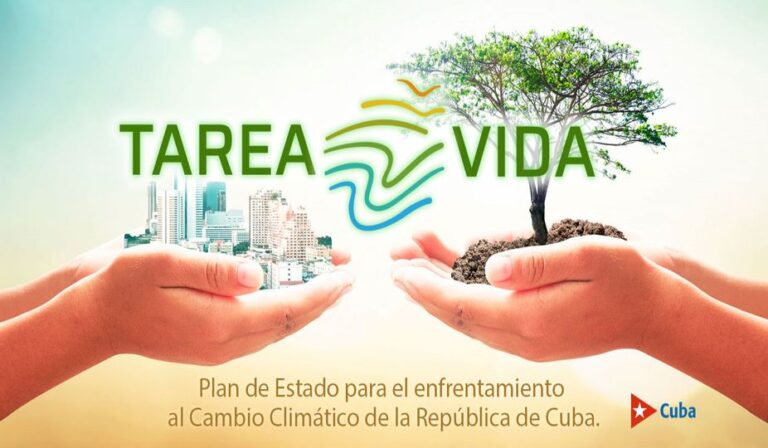 Guantanamo.- With various actions to counteract the effects of climate change, the implementation of the State Plan to confront this global phenomenon to preserve natural resources, ecosystems and population settlements is advancing in the Guantanamo Province.
Guantanamo.- With various actions to counteract the effects of climate change, the implementation of the State Plan to confront this global phenomenon to preserve natural resources, ecosystems and population settlements is advancing in the Guantanamo Province.
This comprehensive strategy brings together the wills of various organizations and entities such as the agricultural delegations, the Institutes of Hydraulic Resources and Territorial Planning, among others, which participate in the implementation of measures to mitigate the effects and achieve greater resilience of the inhabitants, in favor of their quality of life.
The Baracoa Municipality stands out in this area, one of the priority areas of the Life Task, with the reforestation of mangrove forests on the northern coast and in the areas surrounding the rivers, which are exposed to risks due to rising sea levels, flooding and heavy rains that cause damage to the soil and agriculture in general.
Also, in the southern coastal strip, species of forestry interest are planted, based on work in the nurseries in the Maisí, Cajobabo, in Imías, and San Antonio del Sur municipalities , in addition to the effort in the proper management of soil and water resources and species of flora and fauna, in favor of biodiversity and sustainable development.
Likewise, work is done directly with producers to promote the application of agroecological techniques in order to increase local food production, based on a better use of traditional varieties and crops.
The Institute for Territorial Planning and Urbanism is also working on the evaluation and re-arrangement of population settlements that will be affected by the rise in the mean sea level between 2050 and 2100, among other actions.
Likewise, Citma specialists contribute to the Life Task based on studies regarding preventive and preparedness measures to reduce hazards, vulnerabilities to mitigate the impact of natural disasters on time.
Translated by Liubis Balart